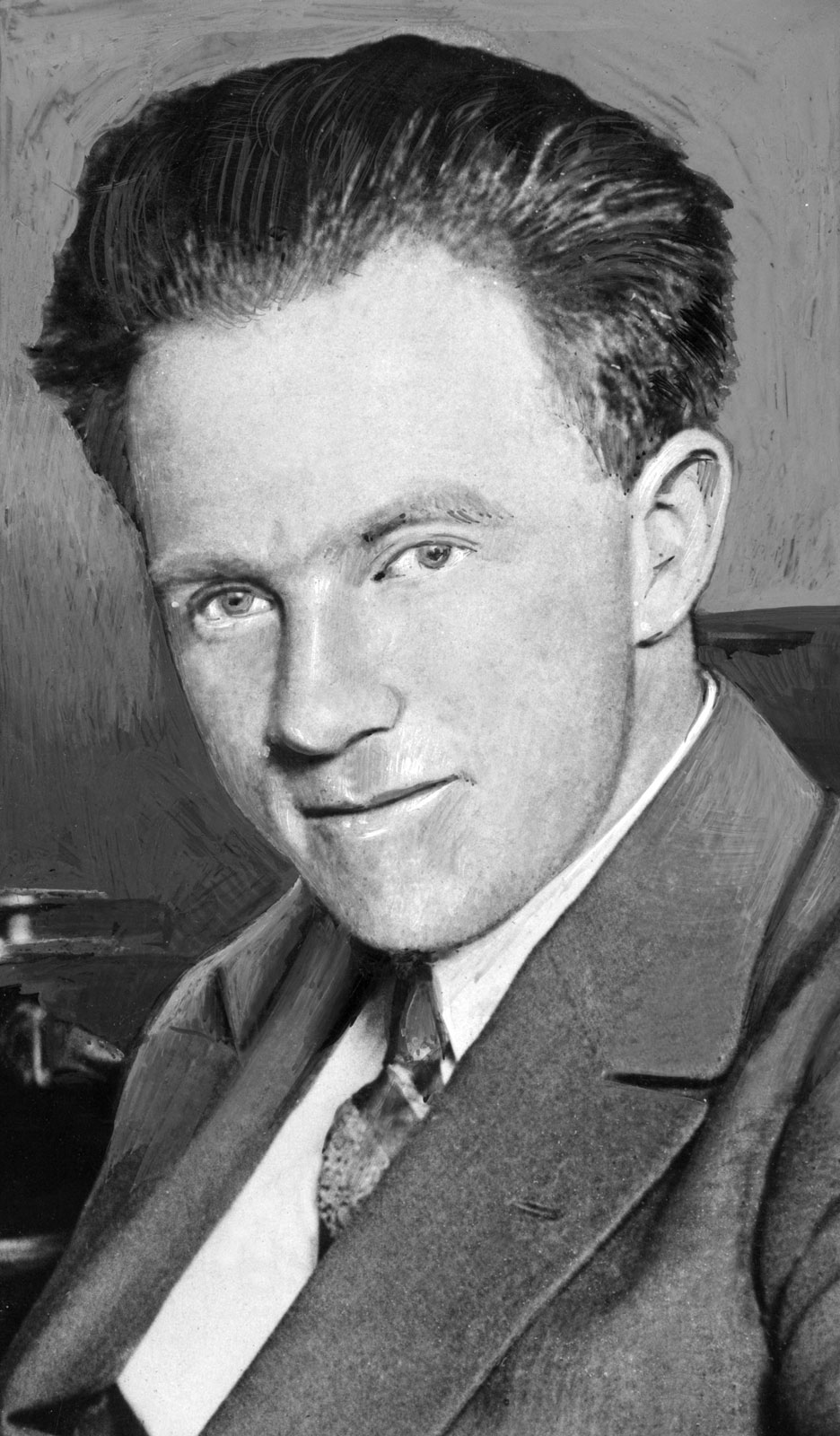Karl Heisenberg is a name that resonates profoundly within the realms of physics and philosophy. Known for his groundbreaking contributions to quantum mechanics, Heisenberg's principles have not only revolutionized the scientific community but have also influenced various fields, including philosophy and ethics. In this article, we will delve into the life and achievements of Karl Heisenberg, exploring his early years, key contributions, and the enduring impact of his work on modern science and thought.
Heisenberg was born on December 5, 1901, in Würzburg, Germany. His academic journey began at the University of Munich, where he studied physics under the guidance of renowned physicist Arnold Sommerfeld. Heisenberg’s brilliance shone early on, and by the age of 23, he had already made significant strides in theoretical physics, laying the groundwork for what would later become known as the Heisenberg Uncertainty Principle.
Throughout this article, we will examine various aspects of Heisenberg's life, including his biographical details, key scientific contributions, and the philosophical implications of his work. Additionally, we will provide insights into his legacy, particularly how his ideas continue to influence contemporary thought. Join us as we explore the profound impact of Karl Heisenberg on science and beyond.
Read also:Mothers Warthm Understanding The Phenomenon And Its Impact
Table of Contents
- 1. Biography of Karl Heisenberg
- 2. Early Years and Education
- 3. Key Scientific Contributions
- 4. The Heisenberg Uncertainty Principle
- 5. Philosophical Implications of His Work
- 6. Impact on Modern Science
- 7. Legacy and Recognition
- 8. Conclusion
1. Biography of Karl Heisenberg
| Full Name | Karl Friedrich Heisenberg |
|---|---|
| Date of Birth | December 5, 1901 |
| Place of Birth | Würzburg, Germany |
| Date of Death | February 1, 1976 |
| Field of Study | Physics |
| Awards | Nobel Prize in Physics (1932) |
2. Early Years and Education
Karl Heisenberg was born into a family with a strong academic background. His father was a professor of classical philology, which undoubtedly influenced Heisenberg's early interest in science and mathematics. Heisenberg’s academic journey began at the University of Munich, where he was exposed to the ideas of influential physicists such as Max Planck and Albert Einstein.
Heisenberg's early education was marked by his exceptional talent in mathematics and physics. He earned his doctorate in 1923 at the age of 22, under the supervision of Sommerfeld. His early work focused on the field of quantum mechanics, which was still in its infancy at the time. This period laid the foundation for his later groundbreaking contributions to physics.
3. Key Scientific Contributions
Heisenberg's contributions to science, particularly in quantum mechanics, are numerous and profound. Some of his most significant achievements include:
- Development of matrix mechanics, one of the first formulations of quantum mechanics.
- Formulation of the Heisenberg Uncertainty Principle, which describes the fundamental limits of measurement in quantum systems.
- Contributions to nuclear physics and the development of the theory of cosmic rays.
4. The Heisenberg Uncertainty Principle
Perhaps Heisenberg's most famous contribution is the Uncertainty Principle, formulated in 1927. This principle asserts that certain pairs of physical properties, such as position and momentum, cannot be simultaneously measured with arbitrary precision. In other words, the more accurately one property is measured, the less accurately the other can be controlled or known.
This principle revolutionized the understanding of quantum mechanics and introduced a level of philosophical inquiry into the nature of reality. It challenged the classical notion of determinism and opened the door to a new way of thinking about the behavior of particles at the quantum level.
5. Philosophical Implications of His Work
The implications of Heisenberg's work extend beyond the realm of physics into philosophy and ethics. The Uncertainty Principle, in particular, raises questions about the nature of reality and our ability to understand it fully. It suggests that there are inherent limitations to human knowledge, prompting discussions about the philosophical implications of scientific inquiry.
Read also:Dale Horvath The Unforgettable Character From The Walking Dead
Additionally, Heisenberg's ideas have influenced fields such as epistemology, the study of knowledge, and ethics, particularly in the context of scientific responsibility and the ethical implications of technological advancements.
6. Impact on Modern Science
Heisenberg's influence on modern science is undeniable. His work laid the groundwork for the development of quantum mechanics, which is fundamental to our understanding of atomic and subatomic processes. Quantum mechanics has applications across numerous fields, including chemistry, materials science, and information technology.
Furthermore, Heisenberg's contributions have paved the way for advancements in various technologies, such as semiconductors, lasers, and quantum computing. The principles of quantum mechanics continue to inspire research and innovation, demonstrating the lasting impact of Heisenberg's work on contemporary science.
7. Legacy and Recognition
Karl Heisenberg's legacy is celebrated worldwide, and in 1932, he was awarded the Nobel Prize in Physics for his contributions to quantum mechanics. His work has been recognized not only within the scientific community but also in popular culture, where references to the Uncertainty Principle and his theories appear in literature, film, and art.
Heisenberg's commitment to scientific inquiry, ethical considerations, and philosophical implications has ensured that his influence will be felt for generations to come. His contributions to science continue to inspire new generations of physicists, philosophers, and thinkers.
8. Conclusion
In conclusion, Karl Heisenberg's life and work represent a pivotal chapter in the history of science. His contributions to quantum mechanics and the philosophical implications of his ideas have shaped our understanding of the universe. As we reflect on Heisenberg's legacy, it is essential to recognize the importance of scientific inquiry and ethical responsibility in shaping the future of science and technology.
We encourage you to leave your thoughts in the comments below, share this article with others, and explore more about the fascinating world of physics and its key figures. Thank you for joining us on this journey through the life and legacy of Karl Heisenberg!
Article Recommendations


